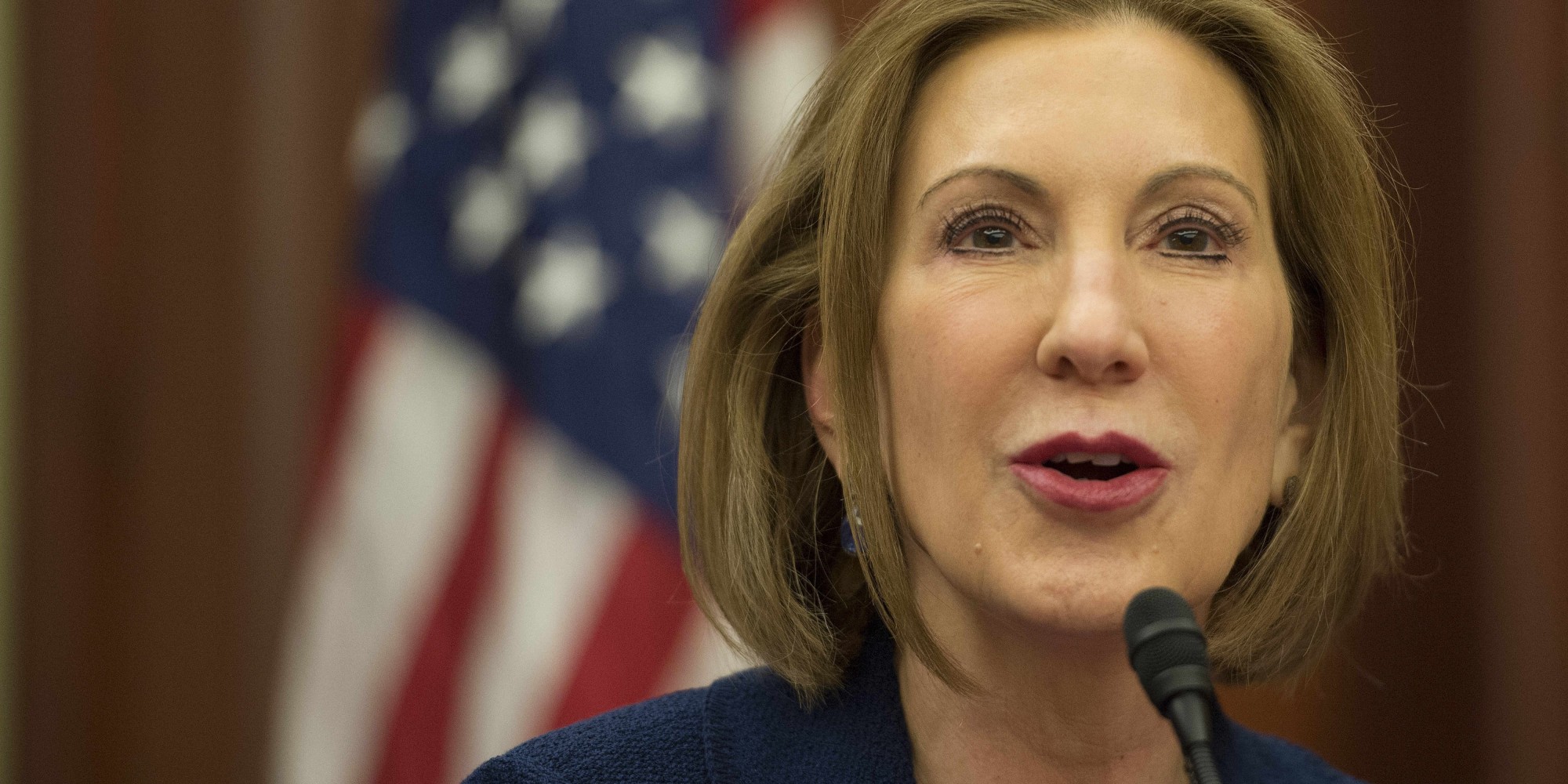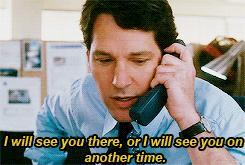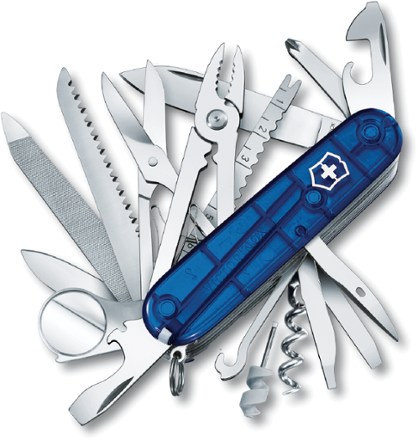A lot of adjustments come with the end of college, and one of the hardest is moving away from your friends. For the past four years, you’ve pretty much spent all day every day with your besties, who were literally across the hall, street or campus. But now, whether you’re living in a new city or all your college friends have moved away, it can feel like suddenly, you have… no friends. But instead of hashtagging everything on social media with #NoNewFriends and comforting yourself with a large jar of Nutella, you should be celebrating the friends you do have, no matter how few or far away. Here’s why!
1. No one actually has 3,572 friends
![]()
As much as we love and could not live without Facebook and Twitter and Instagram and Pinterest, comparing what happens on social media to what our lives are really like is only going to leave you feeling unsatisfied. It all goes back to a famous quote by Steve Furtwick (that you’ve probably actually seen on Pinterest): “The reason we struggle with insecurity is because we compare our behind-the-scenes with everyone else's highlight reel.” This isn’t just true for the beach and airplane pics on Instagram, but also for the numbers we see on social media—the 5,000+ friends on Facebook, the 80 likes on your latest Instagram photo…
Think about it. Chances are that, unless you run a tight social media ship (i.e. you delete everyone you haven’t seen in over a year), you aren’t really friends with even half your Facebook “friends.” There are hundreds of people from high school that you’d ignore if you ran into at the grocery store, another few hundred from college that you had ONE class with freshman year and a handful of people that you drunkenly met and decided you’d be BFFs with for life… and then never spoke to again. But we often forget all of that when comparing our numbers to others’ (why did she get so many likes on practically the same photo?!).
Of course, this isn’t to say you shouldn’t spend 30 minutes reorganizing your breakfast plate for the perfect shot—we’ve all done it—just remember that comparing your real life to your social media life, or feeling like your life is lacking based on what other people are posting on Instagram isn’t doing you any favors.
2. The people you keep in touch with are the people who actually matter
![]()
After graduation, many—or even all!—of your friends moved to different cities. Maybe you even moved to a different country. Since you’re not living with college roomies or spending every waking minute with your BFFs anymore, you might feel like the social life you once had in college has vanished. Back then, you felt so popular—you had friends in classes, loyal gym buddies, even a group of people you went out with every weekend; but without those things in common, there are tons of people you’ve just lost touch with.
Rather than mourn the loss of your dining hall buddies, take comfort in the fact that the people you make an effort to stay in touch with—and those who do the same to keep in touch with you—are the ones that matter the most, says Chloe Dougherty, who graduated from Ramapo College of New Jersey in 2014 and is now teaching English in Israel.
“There are friends from high school and college who I know will be in my life forever and then there are friends that I’ve outgrown and that’s okay, too,” says Chloe.
Part of growing up is letting things go and some friendships aren’t meant to last past graduation. It’s especially common for friendships to come to an end during transitional periods in our lives, like our first year out of school.
“What really gets to me is when one friend isn’t putting in the same amount of work to stay in touch with another friend,” says Chloe. “If you want someone in your life you need to be willing to put in some effort.”
So put in the effort to keep your closest friends, but also don’t feel bad that you haven’t kept in touch with everyone you ever hung out with in college. Instead, appreciate that even though you might not have a designated group to eat lunch with or party with on the weekends, you have friends all over the place that you will always be able to count on. Plus, getting to visit them in new places is pretty fun!
3. You are SO busy
![]()
Whether you’re working 12-hour days or studying to be a doctor, chances are you’re a lot busier now than you were in college. So sometimes, when you get home late after a long day of work or studying, the last thing you want to do is go out and meet new people.
“If you are working, recognize that this is the time of life when you need to devote more time to building a career and that you may not have as much time to socialize as you did in the past,” says Dr. Irene Levine, a psychologist and the creator of The Friendship Blog.
While you should definitely make an effort to meet new friends, there’s no reason you need to go out as much as you did in college (especially since you’ve traded in your class-free Fridays for boardroom meetings at 9 a.m.). Plus, bars aren’t the only place to make new friends! Seek out activities you enjoy where you can meet likeminded people.
“If you like to work out, join a gym,” suggests Dr. Levine. “Get involved with community groups, take a cooking course [or] join a book club.”
And if at the end of the day this all sounds too exhausting, pour yourself a glass of wine and call one of your best friends who’s thousands of miles away. After all, it’s important to strike a healthy balance between maintaining your existing friendships and making new friends, says Dr. Levine.
4. It’s a lot harder to make friends after college
![]()
Even if you get past the “I-have-no-time-to-make-new-friends” thing, there are still other obstacles to face when it comes to making friends after graduation.
Meghan Gibbons, a recent Boston College graduate who now works as a business proposal writer, still lives in the same city where she went to college. But this doesn’t necessarily mean it’s any easier to maintain the social life she had in college or even to meet new people; she says that she hasn’t met many people outside of those she already knew in school.
Even in grad school, making friends isn’t the easiest task. Carly Montini, a master’s student at William Paterson University, says it’s much harder to make friends now, even though she’s still in school.
“Grad programs are small, so while you’re meeting people in the program and you have a friendship with them, you aren’t meeting new people in every class like you do in [college],” she says.
Dr. Levine agrees. “Most [undergraduates] are seeking to make new friends,” she says. “But that isn’t always the case when you leave college.”
Plus, it’s harder to make friends when not everyone lives within five minutes of one another.
“I go to a grad program that everyone commutes to,” Carly explains. “Some of them live an hour away and my closest friend lives a half hour away so even when you want to hang out outside of school it isn’t always easy.”
The beauty of college was the convenience of having everyone around you; it was almost harder to not make friends! But now that you’re in the real world, friendships require more effort; so it makes sense that you would only go the extra mile for the people who matter the most.
5. You’d rather have four quarters than 100 pennies
![]()
A wise person once said quality is more important than quantity and nowhere is this truer than when it comes to friendships.
Meghan has always had a small group of friends, but now, she says she’s glad for that.
“There are too many people I know who had acquaintances on the surface; a group of classmates that were great to drink, party and socialize with,” says Meghan. “But now, in post-college life they complain of feeling lonely because [they lack] those core friends that are so essential to turn to when the stress of a new job, new relationship or new living situation arises.”
Sometimes, having a small friend group in college meant Meghan was out of the loop on campus gossip, she says, but now it means that she has friends that she can reach out to about anything and everything.
Meghan isn’t alone in enjoying smaller groups of friends. Dr. Levine says that people differ in the amount of friends they need.
“Some people are very content with one best friend; others like to be surrounded by a changing cast of people,” Dr. Levine explains.
What is important, she says, is to recognize your own needs and make sure they are met.
“Have at least one or two solid friendships based on mutual respect,” suggests Dr. Levine. “Life is more enjoyable when there are friends to help us share our successes and our sorrows.”
6. You actually have time to spend by yourself
![]()
In college, not sticking by your friends throughout the day, every single day, gave you major FOMO. After graduation, you might learn being alone is not so bad—when was the last time you could sit back with your favorite magazine? Have an at-home yoga session in your living room? Get a massage?
Next time you find yourself lamenting that you have nobody to talk to but your cat, be active in doing something you enjoy. Go to your favorite breakfast spot with a good book; take a walk and listen to a new podcast; even try meditating. You’ll learn a lot about yourself—and you’ll also learn to love your own company.
![]()
It doesn’t matter if you have two or 2,000 friends, as long as each of those friendships makes you feel good about yourself. And most importantly, never neglect your most valuable relationship—the one with yourself! In our increasingly hectic lives, it’s essential to have some “me” time. So every once in a while, relax with a glass of wine (or two) and watch a few (or ten) episodes of Game of Thrones. You just might love spending time with yourself—and you’ll appreciate the BFFs you do have that much more.





























































































 The North Face Wasatch 20-Degree Sleeping Bag
The North Face Wasatch 20-Degree Sleeping Bag






























